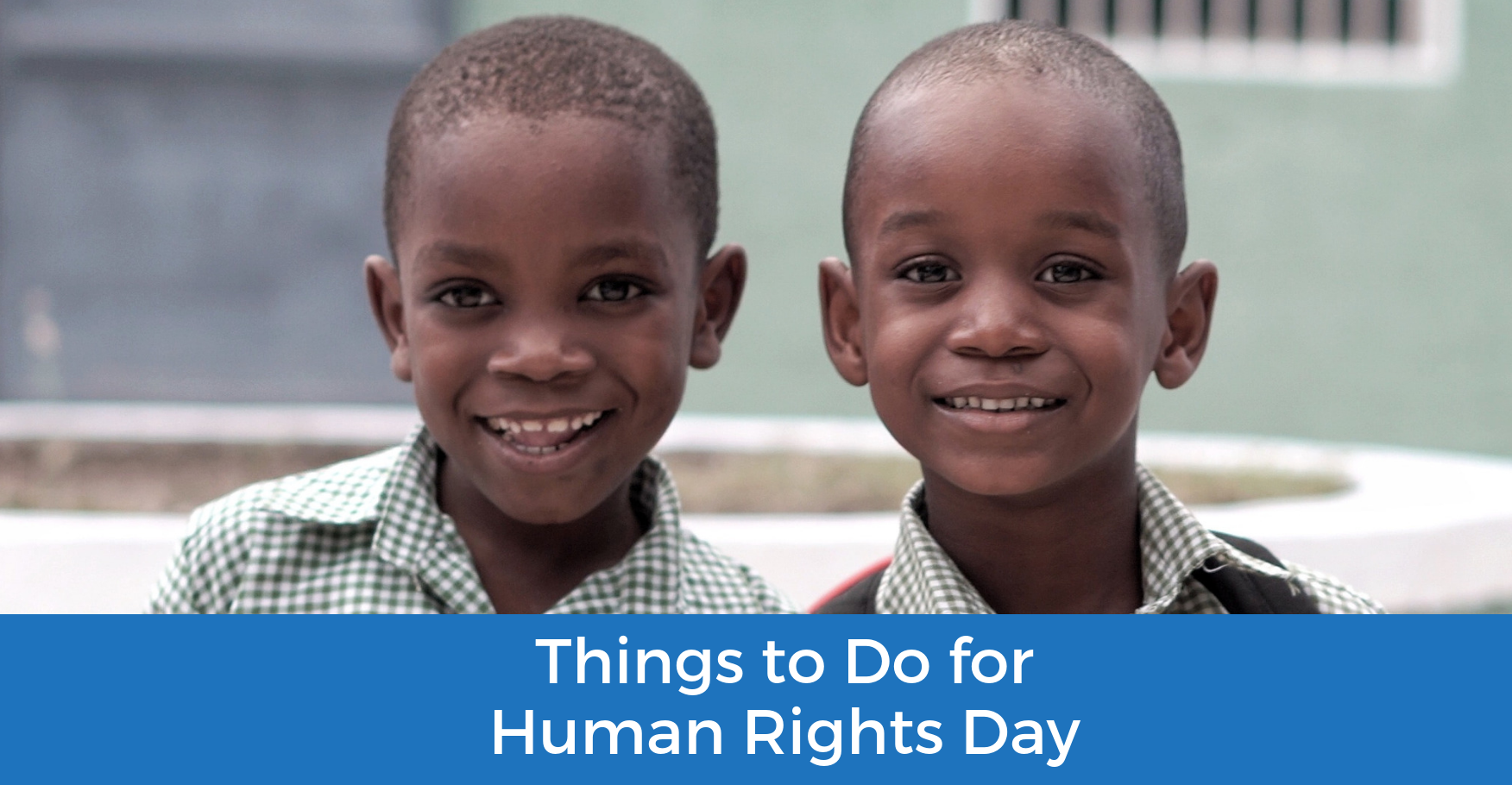Every year on 21 March, we celebrate Human Rights Day. It’s an opportunity to reflect on human rights with your class and to help your learners understand it better.
According to the United Nations, “human rights are rights inherent to all human beings, regardless of race, sex, nationality, ethnicity, language, religion, or any other status. Human rights include the right to life and liberty, freedom from slavery and torture, freedom of opinion and expression, the right to work and education, and many more. Everyone is entitled to these rights, without discrimination”. Mmm, quite a mouthful but very clear.
So, how can you use this day to teach you learners some valuable lessons and make the day memorable? We’ve compiled a few ideas for you below to get your creative juices flowing. Enjoy!
Do an anti-bullying activity
Through bullying, learners’ rights to safety are harmed. Human Rights Day is a good opportunity to discuss bullying. To open the discussion, ask the learners what they think about the saying, “Sticks and stones can break my bones, but names can really hurt me”. Have a short discussion around their answers.
Then, follow this short activity:
- Give each learner some grey paper to make a “stone”.
- Have them write on the stone a behaviour that could hurt someone or make them feel bad. Younger learners can draw a picture.
- Then have them scrunch up the paper and try smooth it out again.
- They can’t remove the wrinkles.
- Compare this to how you cannot remove the hurt the bullying and hurtful words cause.
Talk about how this effects our human rights and how to prevent these bad things from happening to others.
The love web
This is an activity which will show how we form bonds through love and through respect for each other’s rights. Follow these steps with your learners:
- Sit in a circle.
- Take a ball of wool and hold the end. Ask the person with the wool to complete the sentence “To love someone means…”.
- Then have them throw the ball of wool to another learner while keeping hold of the end. The next learner then completes the sentence.
- Keep doing this until everyone has caught the ball. A wonderful web of wool is formed!
- Finally ask the leaners what things can end or harm a relationship. Cut off part of the web with each reply.
- The result is the web is destroyed.
This will help learners understand the importance of human rights and the responsible they all have to preserve them.
Human rights dove
This is a lovely activity to do with the younger ones. They will have great fun being creative as they all work together on one project.
- Cut out a simple, but large, silhouette of a dove.
- Cut out an individual feather for each learner.
- Let your learners decorate their feathers however they please.
- On each feather, write a human right.
- Stick all the feathers on to the dove.
This activity highlights how respecting each other’s human rights builds unity.
Discuss basic children’s rights
As we know, many children are not enjoying their essential human rights. Human Rights Day a great opportunity to open your learners’ eyes to their own privileges and the plight of so many children around the world.
For your reference, this is a list of some of the basic, children human rights:
- All children have the right to a name.
- All children have the right to a place to live.
- Children should be able to grow up with love, affection and security.
- Children should not be made to work before a certain age.
- Children should not be beaten or abused.
- All children should be cared for when sick.
- Handicapped children have the right to special treatment and education.
- Children should not be used as soldiers in times of war.
- All children have the right to free education.
- Children should not be arrested and put in jail.
- All children have the right to enough food to eat.
There are many more activities to do with your learners that will highlight basic human rights. Enjoy helping your learners to think about these things and to appreciate and respect each other no matter their differences.



